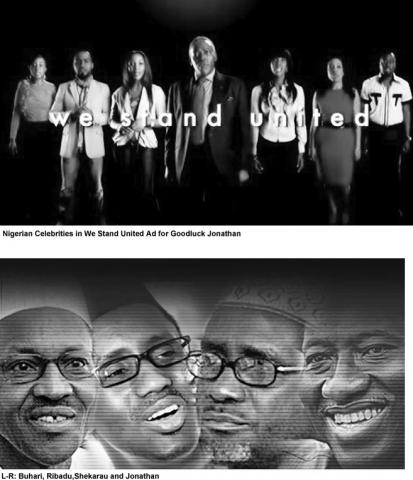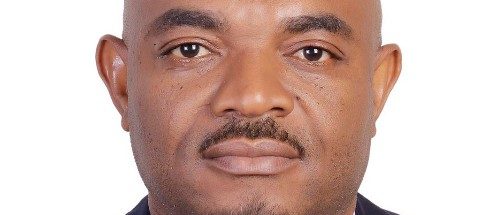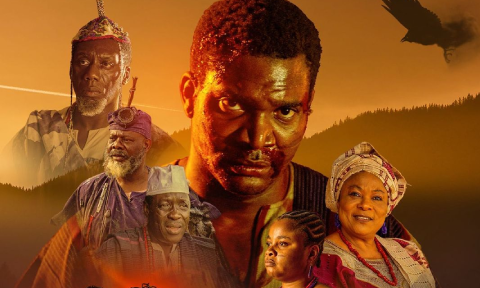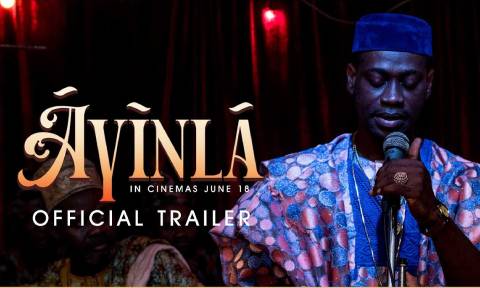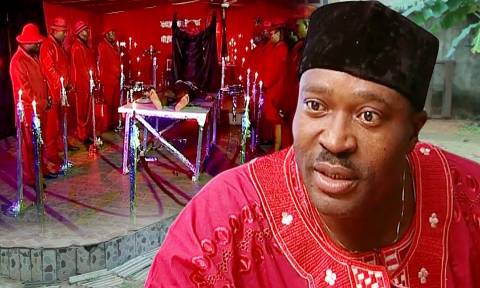BOB Hope Iroegbu, is a theatre practitioner, film maker and an artiste manager. He is the Chief Executive Officer of Renaissance Productions. He has a background in engineering from the Nigerian Railway Training School. With over two decades experience in the theatre, as well as film and television productions, Iroegbu has carved a niche for himself in the industry. In this interview with TONY OKUYEME, the Abia State born artiste explains why he took a leave from artiste management. He also shares his view on why he decided to stop film production, among other issues.
He was his characteristic down-to-earth and humble self with his usual quiet mien, this bright afternoon at his office situated off Adeniran Ogusanya, Street, Surulere, Lagos. His face lit with a smile as the reporter made his way into the compound. “O, how far? I don dey wait for for you?’ Bob Hope Iroegbu, said, and ushered him into the office. After a short period of pleasantries, he went straight into the dramatic story of his career as a theatre practitioner and his experiences in the engineering field. Born during the Nigerian civil war, of a photographer father and a teacher mother, from Isikwuato in Abia State, Iroegbu must have got his passion for the theatre from his father. But he says that there is much more to it.
“I was born in 1970 after the war.” Son of a photographer who was a leading light in photography in his days, Iroegbu recalled the contribution of his father to photography and the influence in his career. “As I said, my father, Monday Iroegbu, was a popular photographer, one of the best during his time, especially in the 60s. He was the owner of Hollywood Pictures. He was the personal photographer to a former Head of State, General Yakubu Gowon (rtd). He covered many historical events in Nigeria. And several photographers trained under him, one of which is the owner of Phototek, Lagos. My mother was a teacher,” said Iroegbu.
Iroegbu attended St’ Child’s Day Nursery and Primary School, Surulere, Lagos, and after that, went to Nibo Boys High School, Okah, Anambra State. Midway through, he relocated to Lagos, and completed his secondary school at Festac Grammar School.
While waiting to get admission into the university, he got admission into the Nigerian Railway Training School, Ebute-Metta (West), Lagos, where he did a certificate course in engineering. “After my training, I worked there for a while – about three years – before I left and was employed at NIPOST where I worked and later rose to the position of a supervisor. I was in charge of Mail Passenger Service, maintenance in a special unit that was then newly created. I was later posted to Jos, in charge of maintenance. We worked there for about three years, before we were redeployed to Lagos. After a while, I left the Nigerian Railway Corporation and went fully into theatre productions.”
However, Iroegbu recalled, prior to his working with Nigerian Railway Corporation, he was not new to the theatre. “I was already in the theatre,” he said. But he was also not new to Engineering. “When I was young, I was very good at fixing or repairing things. For instance, if the radio was bad, I would dismantle it to find out what was wrong, and then try and fix it. If the television set was bad, I was usually the first person to find out what was wrong and then try to fix it up. My parents actually believed that I was going to be an engineer. In fact, they believed that I would do better as an engineer.
“But I was very good in drawing. And as I told you, my father was a photographer. You know in those days, there was no colour picture. What my father did then was that he would take the pictures, enlarge them, and then sit down and paint the pictures. The pictures usually appeared as though they were real coloured photographs. Apart from being a photographer, my father was also a very good artist (a painter) and a dancer too. So, I apparently got the inspiration from my father. I was good in drawing and acting.”
According to him, he cut his theatre teeth in Anansa Play House, one of the leading Lagos-based theatre companies in the 80s. The late prolific theatre director, Bassey Effiong, was the Artistic Director. Iroegbu recalls with palpable nostalgia: “When I left secondary school, I joined Anansa Play House. I was working with Bassey Effiong then. Usually in the evening, we all met at Abe-igi (under the tree) at the National Theatre, Iganmu, Lagos. I was more into managing productions than acting. I was basically into stage management, production management, production assistant among other aspects of theatre production, including publicity, going to schools to invite students to come and watch plays. I was involved in almost all the plays Bassey Effiong did, including Things Fall Apart, Kurumi, and others. During this period, I was still working with NIPOST, and when I was posted to Jos, I left the theatre for a while.
“But coming back from Jos, I started again. I was working and trying to cope but it was not easy for me. Before then, I was with Tropicana Productions, a dance troupe. I was a dancer and later became the welfare manager of the troupe. Later, myself, David Ebi Pre-bai and some other members of the troupe left and formed our own troupe. We did some productions like Ola Rotimi’s The gods are not to blame, Marriage of Anensewa, among others. It was when I went to Jos that I left the industry for a while. The way I left work was funny. I woke up one morning and said I can’t be working and at the same time doing theatre. I believed that theatre production is what I really loved doing. I needed to give it commitment and time, and would not be able to do that while working with NIPOST or other organisations outside the theatre. So, I stopped. But it was very challenging. You know what it means leaving where you were getting salary at the end of every month and then have to live fully on productions. One has to work twice as hard as I did to be able to sustain myself. So, I joined Segun Arinze and we came together and worked on some commercials. That was one of the things that actually made me to leave NIPOST. From there, I started doing production assistant for Kingsley Ogoro, CEO of Klink Studios, and also for Esse Agese.
“From there again, I started doing my own productions, and I have been working since then. I produced the film ‘Familiar Stranger.’ My own production company is called Renaissance Productions. I did some productions for Amaka Igwe. I have produced some commercials,”Iroegbu said.
Sharing his experiences on the challenges of production, he said the basic problem is funding. “After producing Familiar Stranger, I have not gone into film productions again because I did not make my money back, because of the usual marketing problems and piracy. I decided to hold on for a while before doing any other films. If I am able to raise money, I can go into producing another film, but right now, I spent so much money on Familiar Stranger and did not make anything from it. So, I decided to stop for now. Fund is the problem. Getting money to shoot is the major challenge.”
He attributed this trend to the way the industry is. “ Then we were selling tapes, and you know the way the market was then. Marketers sell 10,000 tapes and make profits. This was because the wholesale price of tape was N250 then, retail price was between N300 to N500, depending on where you buy the tape. But now, the situation is different. With the use of CDs, the situation has changed. The wholesale price of CD is less than N60 in the market. You can imagine how much you have to sell to make profit. In those days, if a marketer sells 10,000 cassettes, the marketer would be smiling to the bank with his money while investing on another job. Producers would go back to work again because they made back money they spent on the first one. But the coming of DVD and VCD changed all that. The marketers decided to bring down the price of VCDs and DVDs, thinking it will favour them, not knowing that it would be their downfall. The wholesale price for VCDs or DVDs initially was N200 and it was working for them, but pirates came out with something cheaper. So, they have to sell several thousand copies to make profit.”
On production management, Iroegbu insists that many people don’t really understand the duty or responsibility of a production manager. “They confuse the job of a production manager with that of a production or personal assistant (P.A). They see you as somebody they can push around like a P.A. That is why I don’t do too many jobs. I take my time to work with people who understand what a production manager’s job is all about. I have worked with Kingsley Ogoro, Tade Ogidan, Amaka, and others. They know what you are supposed to do as a production manager. I have done some documentaries for them.
“Artiste management is even the worse. The artiste looks at you as his or her P.A. Because he or she believes that as artiste manager, your job is to run errands – buy orange, drink and so on, or go look for who doing what. I know artiste management is beyond that. Management goes beyond me and you. I should be interested in what you are doing. You come to my office I sign you on; I have the fund to make you what I want you to be, so that you know that you are my artiste. And from there, I can make my money back.”
